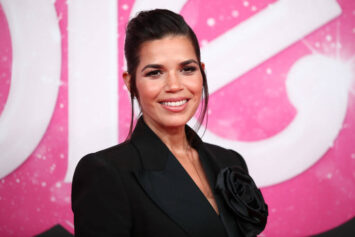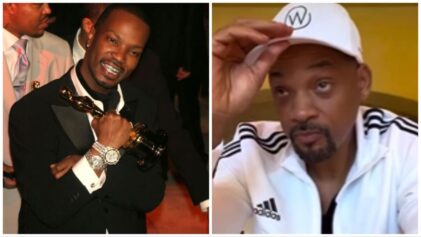On a star-studded night in the final week of February, a select group of elegant Black bodies will, once again, pepper the Dolby Theatre in Hollywood, a space traditionally unwelcoming to their artistic expression and progress. For almost a century, the Academy Awards have celebrated the latest in white cinema and they have done so despite an increasingly diverse and global viewing audience.
It is well known that this year’s celebration, not far removed from last year’s relentless ‘Oscars So White’ campaign, will offer something different. Six African-American-themed films — including Best Picture nominees “Moonlight,” “Fences” and “Hidden Figures” — and 10 Black actors and filmmakers have been nominated for major awards.
Yet, it is less known that this increased representation can, in significant part, be attributed to one current Oscar nominee. For while Hollywood spent the past decade marginalizing African-American and women artists, filmmaker Ava DuVernay spent the decade galvanizing African-American and women artists while marginalizing Hollywood.
“There was a time when I was knocking on doors and concerned with being recognized in dominant culture,” DuVernay revealed in a Fall 2014 Black Camera talk at Indiana University. “I’ve found a space where the terrain is different, where I’m embraced by people like me, and where I’m building new ways of doing things, as opposed to trying to insert myself in a place that might not be welcoming. So, I’m concerned with my own house.”
DuVernay’s house has a style all of its own. She has long held, voiced and acted upon the belief that African-Americans and women should not be dependent on Hollywood to produce accurate and nuanced images of ourselves. Accordingly, the director and activist founded an independent film distribution collective seven years ago that has steadily released and distributed critically acclaimed films by and about African-Americans and women. In the process, DuVernay has notched a truckload of honors and achievements, among them being the first African-American woman to win Best Director at the Sundance Film Festival (2012), the first African-American woman director nominated for a Golden Globe Award (2015) and the first African-American woman director with a film nominated for Best Motion Picture at the Academy Awards (2015).
And though DuVernay recently joined the prestigious directors’ branch of the Academy — and her current film, “13th,” is up for Best Documentary at Sunday night’s awards — one could at least wonder if the Academy celebrates her so much as fears her.
“I think they’ve definitely taken notice,” laughs Tewodross Melchishua Williams, filmmaker and associate professor of visual communication and digital media arts at Bowie State University in Maryland. “I don’t know if its nervousness, but they definitely have had to respect the impact she is having.” Williams says DuVernay has “proven you can put out quality films that are balanced and not stereotypical, and a successful business venture as well. So, I think it’s more that Hollywood is taking her seriously.”
What is clear is that DuVernay, regardless of her current success, is owned by no one. She can literally take Hollywood or leave it, as exemplified by her ongoing passion for and production of independent films and her willingness to walk away from big-money projects, like Marvel’s upcoming Black Panther film, that don’t match her creative vision.
For DuVernay, it has never been about begging others to accept us. Never about appealing to or fitting into mainstream norms for the sake of increasing green dollars and blue eyeballs. Never about crossing over, but more about getting over a “slave mentality” that claims we need movies from Hollywood, of all places, to justify our images of ourselves.
And make no mistake, when it comes to our images, DuVernay doesn’t just make a movie. She paints a rich montage of motion, textured and visually stunning, that stimulates the senses while realizing its intended effect, be it to challenge, soothe or enlighten. Her art leaps from its giant canvas and commands attention like a brightly colored flamingo strutting gracefully against a lush tropical backdrop. Amidst this beauty, DuVernay tells stories, extraordinary, moving accounts of Blackness, both fiction and fact, that poignantly relay back to us what we once were, what we are becoming again and who we really are. And, in doing so, she empowers us — particularly, boldly and unapologetically us.
“I think what most people appreciate about Ava is she has a great storytelling ability that really shows the fullness of the character,” says Williams, clarifying, “especially as it applies to people of African descent. We’re often lumped into this one-sided, unbalanced image in television and film and Ava’s been very successful at showing our vulnerabilities, our strengths and weaknesses, our good and our bad.”
“Ava’s impact on the industry is timely, historic, powerful and legendary,” says filmmaker, author and poet Monda Raquel Webb. She labels DuVernay’s decision to employ a roster of Black women directors for her small-screen hit series “Queen Sugar” as “brilliant. Ava is single-handedly helping women of color get in the game or continue to game,” says Webb, noting DuVernay “gives little Black girls and girls of color hope and a living example of what they can be when they grow up.”
Growing up in Compton, Calif., DuVernay herself had never thought about being a filmmaker. Upon graduating from UCLA with degrees in English and African-American studies, she became a movie publicist and managed publicity campaigns for numerous directors, including Clint Eastwood and Steven Spielberg. Not seeing accurate images of her community in many of the films she promoted, DuVernay grabbed a camera and started producing and self-marketing shorts and documentaries. In 2010 — after her initial efforts were well received on the festival circuit and upon piecing together a limited national distribution network outside of the traditional reach of Hollywood — DuVernay launched AFFRM, the African-American Film Festival Releasing Movement, a screening and promotional vehicle for Black and women filmmakers.
Starting with her critically acclaimed $50,000-budget film “I Will Follow,” DuVernay began releasing independent full-length features and those inside and outside of Hollywood began taking notice. Among them were emerging and established actors like David Oyelowo, Salli Richardson-Whitfield and Blair Underwood, who offered their services to DuVernay in support of her cause with relatively little compensation expected. In 2012, DuVernay’s “Middle of Nowhere” won her the Best Director award at Sundance, and in 2014, after being pulled in to direct the project by Oyelowo as a last-minute replacement, DuVernay’s “Selma” was nominated for Best Picture at the Oscars.
Still, if Hollywood thought such big-screen success would change or co-opt the now internationally known director, it had another thing coming. In May 2015, the activist took her rebellion to Twitter as she organized a widely attended “Rebel-a-Thon” that brought more than 40 Black filmmakers and celebs together in the Twitterverse, including Debbie Allen, Malcolm D. Lee and Oprah, to engage the masses and promote AFFRM’s 2015 Rebel membership drive. Four months later, in September, DuVernay rebranded AFFRM as ARRAY, to ensure African-Americans, women and filmmakers from the African diaspora were more effectively being promoted, seen and heard.
“I love her heart, her spirit and her consciousness,” offers Ada Babineaux, filmmaker and founder of Nommo Speaker’s Bureau, a booking agency for speakers, filmmakers and artists of color. Babineaux also admires how DuVernay has surrounded herself with a lot of the same people — including her cinematographer, current Oscar nominee Branford Young — regardless of her rising profile. “For her to keep the people she started with and then bring on more women of color to direct is phenomenal,” she says.
Concurrent with DuVernay’s high-profile activism, when it comes to film, a lot is changing whether Tinsel Town likes it or not. Over the past decade, a combination of factors have conspired to impact an increasingly out-of-touch Hollywood’s traditional grip on viewers, including the maturing of a younger generation diverse in both ethnicity and taste; the growing demands for inclusion by African-Americans, women and other socially marginalized groups; rapidly changing and more cost-effective technologies; and the much-publicized ‘Golden Age of the Small Screen’ and its provision of additional options for filmmakers, artists and viewers.
And while DuVernay’s timing and impact in the midst of such industry fluidity has been extraordinary, Babineaux clarifies that DuVernay, as the Oscar nominee herself has consistently said, didn’t “start this in a shell. She’s been handed the baton by people she treasures on the independent circuit,” a list including the likes of Julie Dash, Euzhan Palcy, Haile Gerima, Neema Barnette, Charles Burnett and fellow Oscar nominee Raoul Peck, to name a few. That acknowledged, “This is her time,” insists Babineaux, noting “some people can only ride that wave for a little bit, but she is putting a firm foundation around herself to keep moving forward.”
The great thing about it, continues Babineaux, is Duvernay fully knows “she can do films with or without Hollywood. You have to know that if Hollywood didn’t make you, then they can’t break you.
“And if you have a firm foundation of who you are, what your purpose is in this life and what you’ve been called forth to do, then you’ll move forward and do it regardless of whether you have the support of Hollywood or not.”

